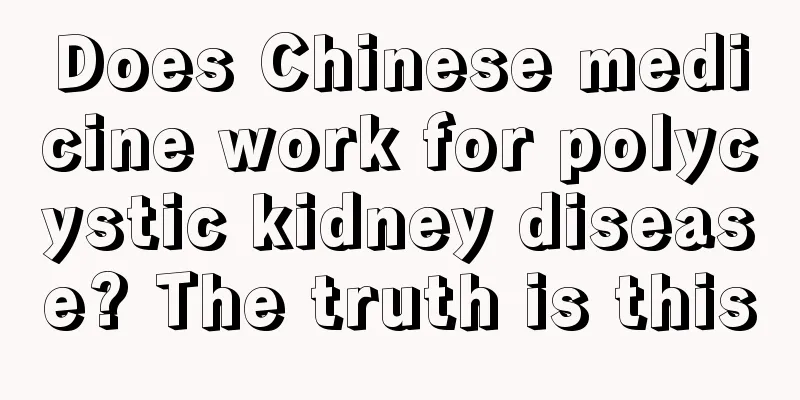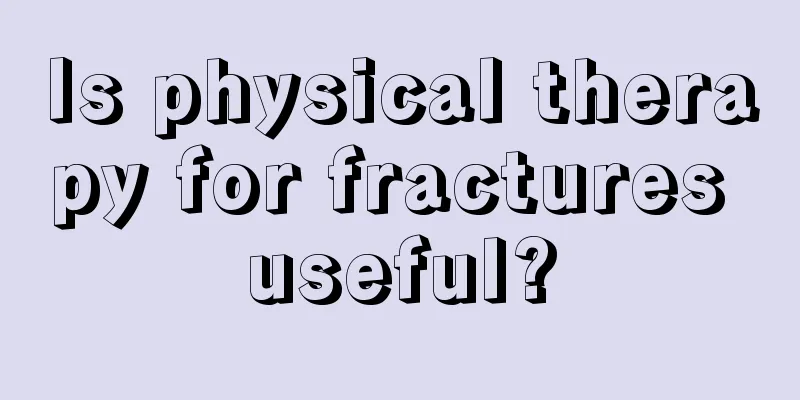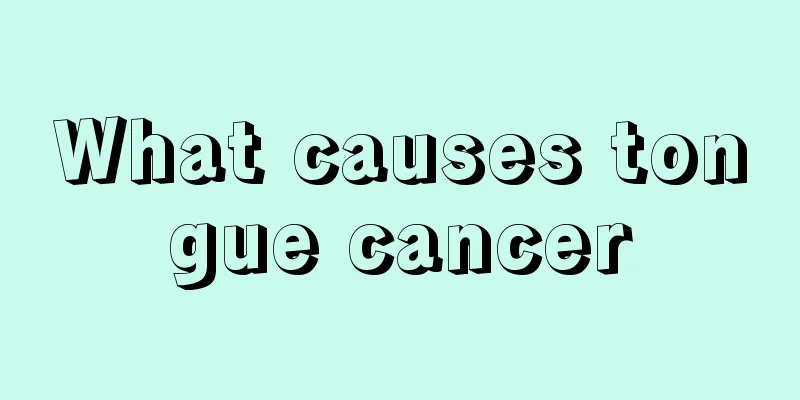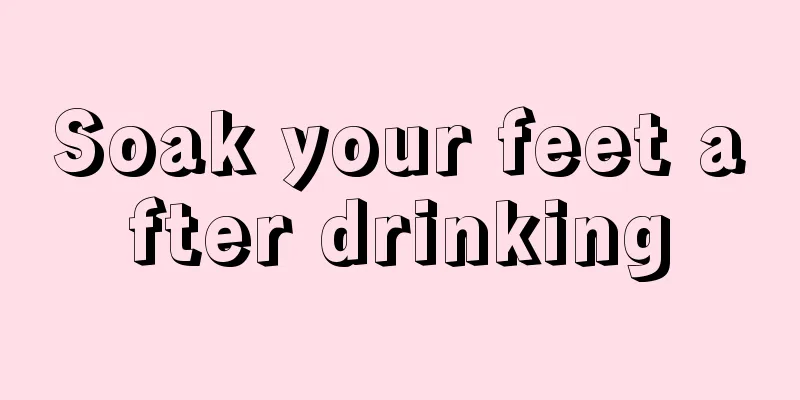Does Chinese medicine work for polycystic kidney disease? The truth is this

|
As the old saying goes, Western medicine only treats the symptoms and not the root cause, and only the traditional Chinese medicine left by our ancestors can eradicate the problem. So is Chinese medicine effective for polycystic kidney disease? This problem has always troubled patients with polycystic kidney disease. In fact, there are two types of polycystic kidney disease. If you want to use traditional Chinese medicine to control the symptoms of polycystic kidney disease, you can achieve your goal, but it is impossible to cure the disease by taking traditional Chinese medicine. 1. There are two types of polycystic kidney disease: autosomal recessive (infantile) polycystic kidney disease, which occurs in infancy and is clinically rare; autosomal dominant (adult) polycystic kidney disease, which is often discovered in young and middle-aged people, but can also occur at any age. No matter which one it is, it is a genetic disease and a disease that is carried from birth. There is currently no method to prevent the progression of the disease. Early detection, prevention of the occurrence and development of complications, and timely and correct treatment of existing complications are crucial. So if you want to use Chinese medicine to control the symptoms of polycystic kidney disease, this is fine; if you want to cure the disease by taking Chinese medicine, that is impossible. What is the effective treatment for polycystic kidney disease? 1. General treatment of polycystic kidney disease: In general, after the patient is diagnosed with polycystic kidney disease, the first thing to do is to maintain an optimistic attitude. If it has not yet affected the patient's normal life, he or she should be careful not to eat or eat less salty, spicy and other irritating foods, keep a regular schedule, and keep a stable and optimistic mood. If it affects the patient's normal life, early treatment should be given, otherwise it will be too late if it is allowed to develop into renal failure and uremia. 2. Cyst decompression: This operation reduces the pressure of the cyst on the renal parenchyma, protects most of the remaining renal units from squeezing and further damage, improves renal ischemia, restores some renal function units, and delays the progression of the disease. The key to a successful operation is to perform the surgery as early as possible. The cyst decompression must be thorough, and decompression of small cysts and deep cysts should not be abandoned. Both sides should undergo surgery, and the interval between bilateral surgeries is generally more than half a year. In late-stage cases, such as patients with renal impairment in the azotemia or uremia stage, decompression treatment is meaningless regardless of whether they have hypertension, and surgery may even aggravate the condition. 3. Dialysis and transplantation: When entering the end-stage renal failure, dialysis treatment should be immediately initiated, with hemodialysis being the first choice. The survival rate of kidney transplantation for polycystic kidney disease is similar to that of kidney transplantation for other reasons, but the concomitant diseases increase the difficulty of postoperative treatment and affect the transplantation effect. 4. Treatment of hematuria: When hematuria occurs, in addition to identifying the cause and providing treatment as soon as possible, you should reduce activity or rest in bed. For patients who are already on dialysis or about to undergo dialysis and have recurrent severe and uncontrollable hematuria, transcatheter renal artery embolization may be considered. 5. Infection treatment: Renal parenchymal infection and intracystic infection are the main complications of this disease, and the general principle is the combined use of antibiotics. 6. Combined treatment of upper urinary tract stones: Treatment should be carried out according to the principles of urinary tract stone management based on the location and size of the stones. The above-mentioned treatments can help patients relieve the disease, but they should also pay attention to the conditioning methods to avoid infection. In daily life, they need to pay attention to reasonable treatment and effectively deal with the disease to avoid causing more harm. Everyone needs to pay attention to their physical and mental changes and maintain a good attitude. |
<<: What to do if the eardrum is ruptured? Learn the treatment methods
>>: Is it ok to apply alcohol to the itchy ear
Recommend
How much alcohol is appropriate?
Maybe many of us will drink a lot in order to cop...
Early symptoms of esophageal cancer
Early symptoms of esophageal cancer include diffi...
How long does it take for the incision to heal after thyroid cancer surgery
The incision from thyroid cancer surgery usually ...
Early stage cancer can be seen from this part
Everyone may get cancer because we all have a &qu...
How can I remove the birthmark on my face? Is there any method?
Some friends want to remove birthmarks because th...
What are the symptoms of early laryngeal cancer?
What are the symptoms of early laryngeal cancer? ...
How to treat breast cancer? Five misunderstandings about breast cancer treatment
As long as you have a disease, you need treatment...
The function of ore powder
Women of a certain age will gradually begin to ta...
It turns out that golden lotus leaves have these effects and functions
Golden lotus leaves have the effect of clearing h...
What are the benefits of hot water steaming your face
Many friends actually don’t understand the benefi...
8 tips to relieve itching after mosquito bites
1. At home, you can use strong soap to quickly re...
Is the patchy high-density shadow in the lungs lung cancer?
Patchy high-density shadows in the lungs are not ...
What are the early symptoms of lung cancer? 9 unknown symptoms may be early manifestations of lung cancer
Many diseases are preventable. As long as we unde...
Is a pituitary tumor serious?
The severity of a pituitary tumor depends on the ...
How to treat rheumatism?
First of all, don’t think that rheumatism only ex...









